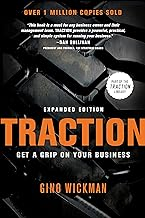The Master Planner
An Interview with Kermit Engh of Methods for Management

Having a plan for your business sounds like a great idea. But there are garments to process, that stubborn stain to remove that nobody else can get out, and the phone is ringing… again. It’s a given that your busy workday is not the time to dive into a thorough planning session.
But later, when the lint settles, and you are in your favorite easy chair at home, you have the space to let your mind wander. If you’re a successful business person, it may wander to the idea of growing your business and taking it in a specific direction. This is your golden time to plan.
We asked Kermit Engh, a business coach with Methods for Management, to help us see the value of making a plan and living it out.

Q: The “average” cleaning business or laundry is small. The owner is completely involved in processing orders all day and probably doesn’t have a plan. Can planning help an owner like this?
A: Having a plan will, first and foremost, allow them to work on their business rather than work in their business. The only way a small operator can grow is to have a plan.

Q: Have you worked with smaller companies that have taken hold of the idea of planning the future of their company and succeeded?
A: As a Facilitator for Methods for Management’s peer-to-peer bureau groups, I’ve witnessed the transformative power of a yearly plan and budget. One of our Canadian members adopted this practice and saw a significant increase in business and profits. This disciplined approach to planning has driven their business growth, keeping them on the path to success.

Q: What do you see as the toughest mental hurdle for a business owner to overcome if they have yet to plan for the future?
A: Operators are mentally (and physically) overwhelmed with day-to-day operations, making them feel like there is no time to plan. They are putting out fires and trapped in that circle of constantly feeling behind. If they can get past this hurdle and take the time to create a plan and budget for the year, they will find that sense of being overwhelmed diminishing as they begin to take control of their time and can envision where the business is heading.

Q: What are two or three benefits a company might expect to see immediately when they create a business plan and goals?
A: First, they will feel relief. They have a plan and can share it with their staff so everyone knows the goals and can work to achieve them.
Second, a plan allows owners time to focus on the business without dealing with minor day-to-day issues.
Third, when they know their goals and budget–and follow them–they will become more profitable.
Q: If you could get 100 dry cleaners or launderers in a room today, what would you say to them to bring home the importance of planning?
A: Having a plan and creating a budget will allow you, as an owner, to stop the cycle of putting out fires and only dealing with problems, instead of controlling your business’ destiny by focusing on growth. For those who need help figuring out where to start, I recommend reading the book Traction by Gino Wickman. [Link is to Amazon] It’s a heavy book that will help you understand the importance of planning. Every operator I know who has taken the time to read the book and implement the Entrepreneurial Operating System (EOS) has grown dramatically in both sales and profits.

Besides reading the book Traction, I highly recommend that operators who have been struggling to stay on track and break free of daily operations consider joining a peer-to-peer cost group like Methods for Management. I have been part of peer groups for 28 years, and I know I would not have accomplished what I have without the shared knowledge and support I have received from the group.
Q: What if our readers want to continue this conversation with you? How can they get in touch?
A: If any readers are interested in learning more about creating a plan and budget or how peer groups can help them become more profitable, I would be happy to talk to them. They can reach me at kengh@mfmi.com.






